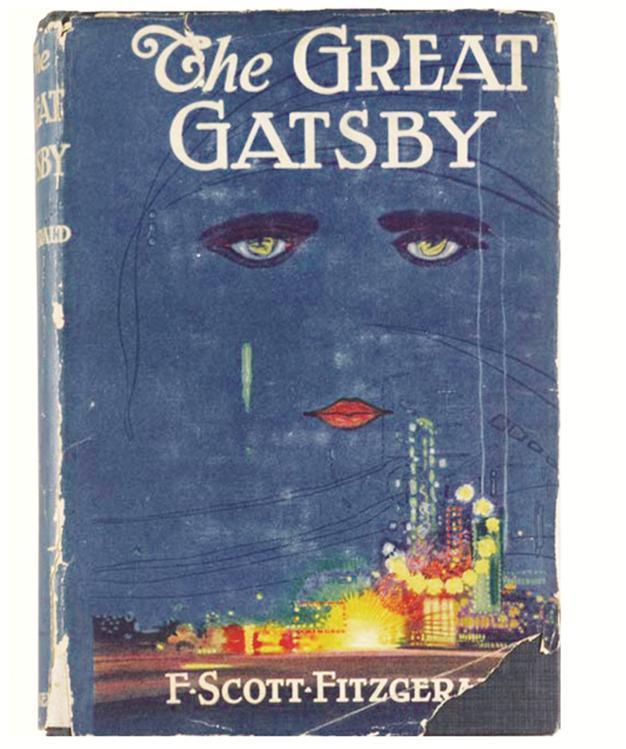Fitzgerald’s classic novel ‘Great Gatsby’ goes on sale at auction
NEW YORK

The Great Gatsby by Fitzgerald which once belonged to the critic and author Malcolm Cowley on June 11.
Sotheby’s is preparing for its exclusive “Books and Manuscripts” sale, which will include a particularly important first edition of The Great Gatsby by F. Scott Fitzgerald which once belonged to the critic and author Malcolm Cowley on June 11 in New York.Although the sales at the time were disappointing in comparison to the author’s first bestsellers, The Great Gatsby became Fitzgerald’s masterpiece. The book is now almost universally recognized as standing among the great achievements of 20th century American literature with the tragic story of Jay Gatsby, and more broadly, the American dream, resonating with readers for generations.
This important association copy is estimated to fetch $100,000 to $150,000. In addition to the importance of the work, the dust-jacket for Gatsby has also achieved iconic status, not only for the image but for the difficulty in obtaining an example in good condition. Wholly different in its Deco style from the earlier book jackets and designed by Xavier Cugat’s brother, Francis, the cover image has become inextricably linked to the novel’s tone and themes as few, if any, jacket designs have managed.
Critic’s novel
This copy of The Great Gatsby once belonged to the critic and author Malcolm Cowley who became one of the most influential figures of American letters. He is known for championing generations of authors from Hart Crane and Faulkner, whose works he helped return to print, to John Cheever and Jack Kerouac through to Ken Kesey. He had a particular affinity for Fitzgerald though, adding immensely to the critical reassessment of his work begun in the 1940s after his death. In his copy of The Great Gatsby, Cowley has transcribed over 100 notes and comments made by Fitzgerald in his personal copy which is now in the collection of Princeton University. The sale also includes other Fitzgerald material including a group of letters in which the author writes to the host of a dinner apologizing for being inebriated at a party, along with an unfinished five-stanza poem.
















